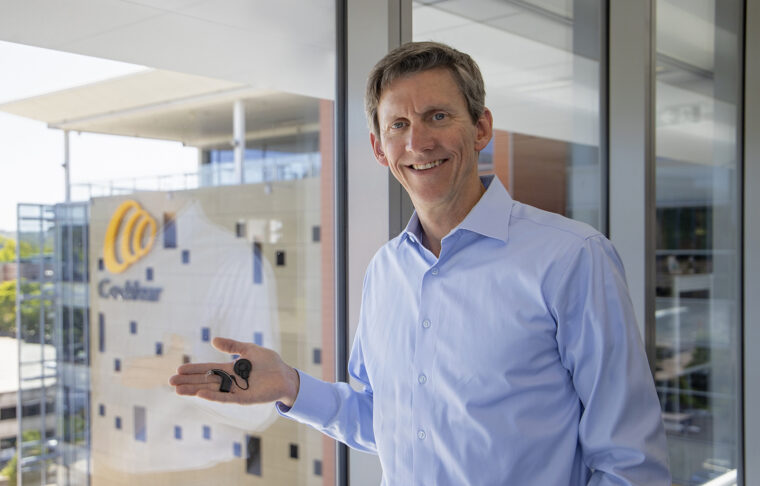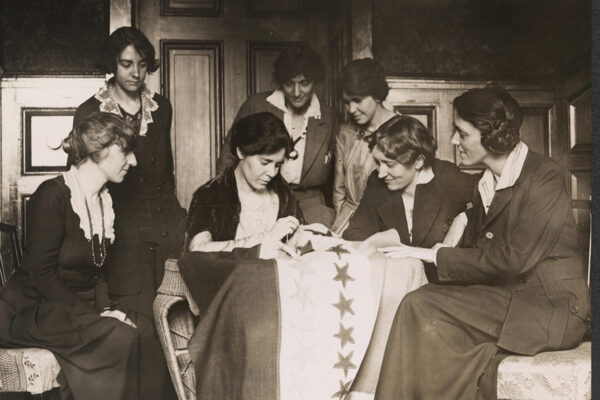As a kid, Roger Smith, AB ’93, MS ’96, started to lose his hearing and had to get hearing aids. It didn’t slow him down. He attended WashU, earning a bachelor’s degree in biology and a master’s degree in physical therapy. As an undergraduate, he was active in the Sigma Alpha Epsilon fraternity, played intramural sports and helped build the fraternity’s haunted house each year at Thurtene Carnival.
“I wasn’t very vocal about my hearing loss in my undergraduate days,” he says. “But when I did speak up, my professors were very accommodating and understanding.” In graduate school, he was more vocal and was always met with a lot of support.
After graduation, Smith moved to Colorado where he worked as a physical therapist before moving into medical-equipment sales. He married, had two kids, and dealt with small but increasingly noticeable deteriorations in his hearing.
“There were not a lot of sounds in my life by the time I got a Cochlear implant.”
Roger Smith, AB ’93, MS ’96
Then Smith’s brother, who is also hearing impaired, got a Cochlear implant. (The Smiths think this might be a genetic condition affecting the men in their family.) “The results he got in just a few short months blew me away,” Smith recalls. Roger’s kids were 2 and 4 at the time, and he was struggling to hear their high-pitched voices. Plus, understanding unfamiliar voices was becoming challenging and was an important part of his work. So in 2009, he got a Cochlear implant.
“There were not a lot of sounds in my life by the time I got my Cochlear implant,” Roger says. When he tested his hearing aids against his Cochlear implant a year later, he was sitting by a lake. With just his hearing aid, he thought he could hear a dog barking. With only his implant, he could hear “a dog barking, the birds singing, the kids laughing, the airplane overhead, the boats on the lake, the waves lapping the shore and my wife calling my name from a distance! A night and day difference!”
In 2010, Smith was in Haiti helping people in need of physical therapy after the earthquake. “Being in Haiti made me realize how much I really wanted to help people and give back,” Smith says. After having his life changed by Cochlear implants, he “realized that this is a fantastic product that could help thousands, even millions of people around the world.” According to the World Health Organization, about 5% of the world’s population, or 466 million people, have disabling hearing loss.
Smith interviewed for a job at Cochlear in Colorado, but they didn’t have a position for him. But Smith’s wife is Australian, and since Cochlear is headquartered in Sydney, the interviewer connected Smith with someone there.
“Being in Haiti made me realize how much I really wanted to help people and give back.”
Roger Smith, AB ’93, MS ’96
“The stars kind of aligned,” Smith says. He got a job at Cochlear headquarters in Sydney 10 years ago. Today Smith is one of their senior product managers in the sound processors and connectivity team within the global marketing department. His role is to champion the customers’ needs within the organization, by sharing them with the research and development side of the business. They then work together to define what products will best meet those needs.
Smith’s earliest project was working to create a waterproof accessory for the Cochlear implant’s processor. (The implant itself is waterproof, but the external processor is not.)
“I thought of it as the last frontier for people with hearing loss, because when I go swimming with my kids, I had to take my hearing aid and my sound processor off. And then I’m pretty much completely deaf, so I’m not hearing the laugher and the shouts of my kids as they’re having such a great time,” he says. “It was really exciting to be a part of that development and get the feedback about how amazing it is to be in the water with friends and family, and be able to hear everything.”
In addition to his work at Cochlear, Smith serves as a non-executive director at Hear for You, an Australian not-for profit group that helps teenagers dealing with hearing loss. “The teenage years are always a tough time in someone’s life, and to be a teenager with hearing loss just adds to the challenge.”
The group lets teens meet others who have hearing loss and teaches them how to advocate for themselves and learn new skills to help them achieve their goals.
Cochlear implants are not without their controversy. Some people in the deaf community think the implants, which electrically stimulate the nerves in the inner ear so people can hear sound, destroy deaf culture and reduce practitioners of sign language.
“Cochlear is working with the community around the globe to try and respect those opinions,” Smith says. “But also again make sure that everyone’s aware of the benefits so each individual or family can make their own choice.”
Smith’s own son started to show signs of hearing loss when he was in kindergarten. Now, he uses hearing aids, but Smith knows that his son will ultimately need a cochlear implant.
“What better company to work for than the company that gave me and my brother our hearing back and that one day will help my son?” Smith asks. “It’s pretty amazing.”



